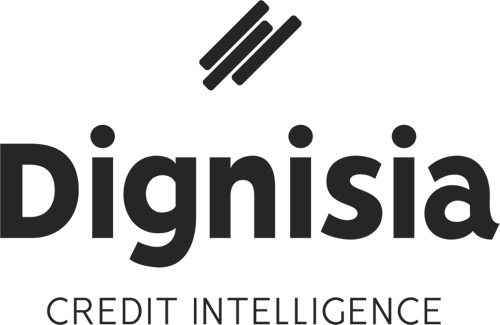4 areas in your collection strategy you need to revisit right now

Every company wants to grow. But for credit professionals to contribute to company growth, they need to have a well thought out collection strategy and not make costly mistakes. In a collection strategy, there are a few areas that are impacting your business more than you’d think. Neglect these areas, and you’ll have a hard time growing. Let’s look at these areas, and why they need your attention as soon as possible.
Ever since we started in 2018, we’ve noticed that most successful creditors have full knowledge about the entire credit life cycle and how it impacts their important customers. They have a clear overview of the collecting process, both in-house, and how the collection agencies work.
But, we’ve also noticed that many companies are working in silos, optimizing different areas in a contained environment, without zooming out. This makes it difficult to turn incoming data into value for the business. If you never zoom out, you risk missing important parameters when it comes to sustainability, compliance, risk management, growth and more.
Zooming out and having a clear end to end perspective of the whole collection process, impacts more than just your cash flow. It impacts your customers, your brand reputation and if you’re not careful, it could have a negative impact on the future of your business.
In this article, we will go over the 4 most important areas in the collection phase which impacts your business the most. Tend to these areas, and you will elevate your success rate when it comes to growth, brand reputation and customer satisfaction. And you’ll lower the risk of dangerous mistakes.
1. Optimize your collection strategy
What do you do with all your data from collecting debt and selling portfolios? Are you collecting the right data, analyzing it and learning from it? The amount of data you have access to can be a complex and overwhelming amount. Many companies struggle to make sense of it and are leaving money on the table. The best credit professionals know how to extract valuable information from it, and use the insights to improve their performance.
Whether you want to improve your in-house collection, or your overall results working with collection agencies, you need to optimize your strategy. The end goal is of course to increase cash flow, but the way you get there is by learning more about your customers, their payment patterns, their ways of communicating etc. With this knowledge you’ll not only know how to increase your cash flow, you’ll understand how to talk to your customers better and have a higher chance of continuing on your growth journey.
2. Prove your sustainability efforts
Sustainability is a rising trend which will probably not end for a long while. People are drawn to companies who contribute to a prosperous world, and they take this into account when choosing a place to work, or a company to invest in.
You need to make sure that your business model and your way of working is contributing towards improving the climate, social and economic state of the country, and the world. But even if you are doing great, professional work, proving your efforts towards investors and talents can be a struggle. How do you prove that your work is contributing to a more sustainable future?
With Dignisia, you are joining us on our journey to create a healthier economy. With a platform like ours, you make sure that you give sustainable credit, which will contribute to lowering the personal debt in Europe. Not only is Dignisia a platform that helps you with all areas we mention in this article, but working with Dignisia acts as proof that you are making the world a better place. Working with our platform is something you can show investors and talents and they will trust you more for it.
3. Make sure everyone follows compliance
How do you know that you are compliant when it comes to collections? Whether you are handling collections internally, outsourced or both, it's important to ensure that your representatives are treating your customers according to your SLA:s and way of working. Not only are there laws and regulations you need to follow, the treatment of your customers heavily affects your brand as well.
Sometimes the whole process is very transparent and you get relevant insights into how the collection process is being handled, but sometimes the world of collection isn’t always that transparent. To solve this, many companies invest in softwares that tracks and saves everyone's actions. This gives you an easy overview of the entire process, and you can confirm that your collections are in compliance with regulations and your business model.
4. Level up your risk management
Improving your risk management is one of the most important investments you can do for your financial growth. By having a scorecard where the segments are based on relevant data, and updated using the latest insights, you’ll maximize your sales, increase your collection performance and improve your batch quality.
The challenge many risk managers face is that the organization is working in silos. Instead of communicating and sharing all the information, it can be difficult to get the right data and feedback from collection, especially when working with forward flow. But what if you could continuously analyze performance from your risk segments throughout the whole cycle, even if you use a forward flow strategy?
This is where Dignisia can help. Our platform allows you to keep the data organized into risk segments, even after you’ve outsourced the collection. The received data is organized and you can quickly uncover insights, improve batch quality and maximize your sales. If you use the right tools, improving your scorecard doesn’t have to be an administrative hassle.
You can learn more about how we work here.




